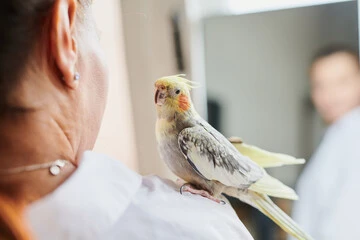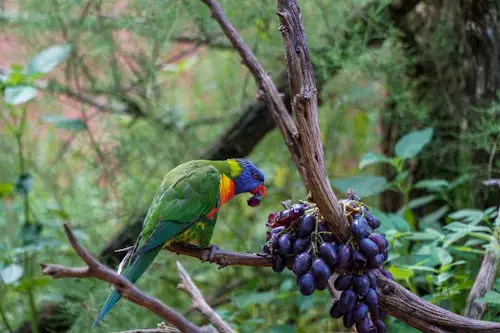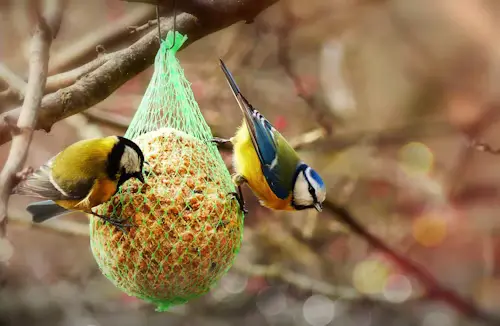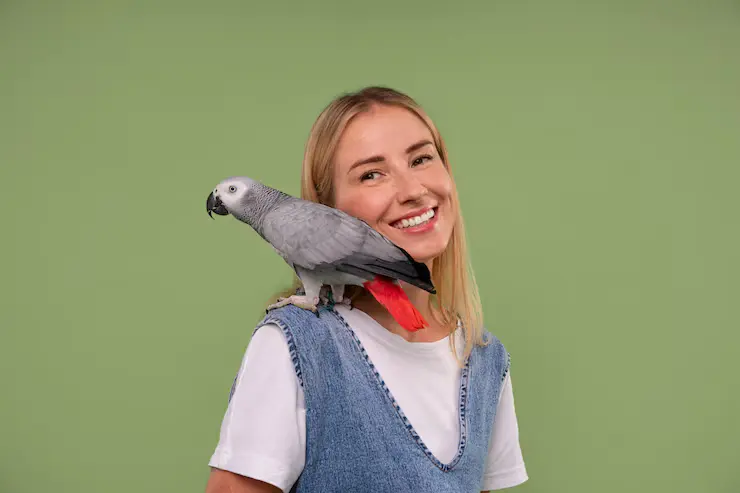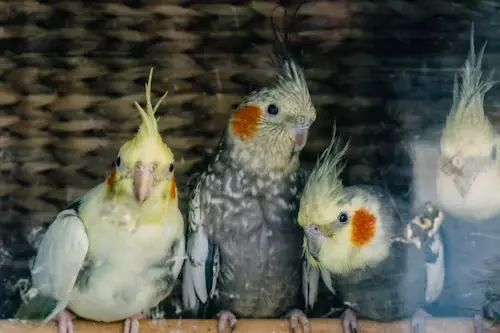Can Birds Eat Eggs? Best Happy Proven Facts You Need
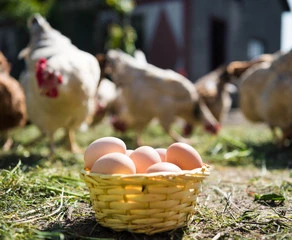
Have you ever cracked a fresh egg over your pan, only to feel a curious little tug on your pant leg? Your feathered companion, head cocked with intense interest, seems utterly fascinated by your breakfast. Suddenly, the question pops into your mind: Can birds eat eggs? And should I offer some to my beloved pet? The answer is more nuanced than a simple “yes” or “no.” Whether you’re observing backyard robins or caring for your vibrant parrot pal, understanding the truth about eggs and our flighty friends unlocks surprising insights into their natural behavior and dietary needs.
Table of Contents
The Raw Truth: Seeing Eggs Through a Bird’s Eyes – Instinct & Nutrition
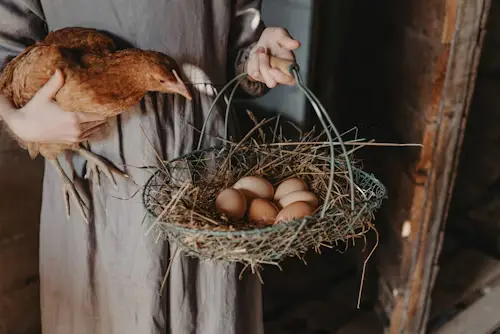
Birds engage with eggs in complex ways that many overlook. Some species, like crafty crows, gulls, or ravens, are notorious birds eating eggs stolen directly from other nests. Cuckoos and Cowbirds take egg-larval parasitism to a whole new level, relying entirely on foster parents to raise their young. As one observer noted, “Most will. Cuckoos and Cowbirds rely on it, since they lay their eggs in the nests of other birds and the foster parents will raise the…” (Source: Competitive Meta Description). Even squirrels and snakes join the scramble as common nest raiders. This isn’t just opportunistic theft; it’s an efficient way to obtain concentrated calories and nutrients critical for survival.
For pet birds, the drive to consume eggs isn’t about theft but nourishment. Their bodies instinctively recognize the incredible nutritional payload within a humble egg. They aren’t moralizing about cannibalism – they’re responding to an evolutionary drive for high-quality protein and essential minerals. An experienced bird owner shared online, “I feed my green cheek conure an egg every other day or two when he is molting as they can…” (Source: Competitive Meta Description), highlighting their use for energy-intensive periods.
Cracking Open the Benefits: Essential Nutrients in Eggs

Eggs truly are nature’s multivitamin, packed with bioavailable nutrients perfectly tailored to support avian health:
- Complete Protein Powerhouse: Eggs provide all nine essential amino acids crucial for maintaining strong muscles, feathers, beak, and claws. Unlike plant sources, animal protein is highly digestible for birds.
- Calcium Champion: The mineral every laying hen desperately needs! Critical for eggshell formation (obviously!), bone strength, proper nerve function, and muscle contraction—including that powerful heart muscle. A deficiency can lead to thin-shelled eggs, fractures, or even seizure.
- Vitamin Bonanza: Eggs are rich in vitamins crucial for vibrant health:
- Vitamin A – Vision, skin & feather health
- Vitamin D3 – Essential for using calcium effectively
- B Vitamins (especially B12 & Riboflavin) – Energy metabolism
- Choline – Liver function & brain health
- Mineral Boost: Significant amounts of Selenium (antioxidant), Iron, and Phosphorus accompany the potent calcium found particularly in the shell.
Table 1: Crushing the Nutrients – What an Egg Offers Your Bird
| Nutrient | Found In | Benefit for Birds |
|---|---|---|
| Complete Protein | White & Yolk | Muscle maintenance, feather growth, healing |
| Calcium | Shell (Primary) | Strong Bones & Beak, Healthy Egg Laying |
| Vitamin A | Yolk | Sharp Vision, Healthy Skin & Feathers |
| Vitamin D3 | Yolk | Calcium Absorption, Bone Health |
| Choline | Yolk | Brain Function, Liver Health |
| Selenium | Yolk | Antioxidant (Fights Cell Damage) |
Key Takeaway: Understanding this can birds eat eggs question means appreciating why wild birds seek them and how we can harness their benefits responsibly for captive companions.
Bird Buffet Basics: How to Serve Eggs to Your Pet Safely

“Let’s start with this one. I know some bird owners that are bold enough to ignore their vets and bird forums and feed their birds eggs. However…” (Source: Competitive Meta Description). Caution is vital! Serving eggs responsibly is non-negotiable for your bird’s well-being.
Can Birds Eat Raw Eggs? The Salmonella Stakes
Feeding raw eggs poses significant risks experts universally advise against:
- Salmonella & Bacterial Nightmares: Raw eggs can harbour dangerous bacteria like Salmonella or E. coli. Birds exposed could suffer severe food poisoning.
- Biotin Binding: Raw egg whites contain Avidin, a protein that binds Biotin (Vitamin B7), potentially leading to feathering problems and skin issues over time.
A parrot nutrition expert emphasizes, “Parrots are not designed to eat eggs and do not eat eggs in the wild. This is just ONE case…” likely referring to situations of inappropriate amounts or preparation causing health issues. (Source: Competitive Meta Description – Lafeber context). Stick to cooking!
The Cooked Conundrum: Best Practices
Rotate cooked egg types to prevent pickiness:
- Hard-Boiled: The easiest! Let it cool, peel it, finely chop/mash the white and yolk together. Perfect for mixing into veggies or fruit mash.
- Soft/Medium-Boiled: Offers a different texture. Ensure yolk is thoroughly set.
- Scrambled (No Salt/Butter/Sauce): Cook plain in a non-stick pan. Avoid non-stick cookware fumes!
- Baked Egg: Mix mashed egg into a bird-safe bread mixture and lightly bake.
Frequency & Quantity:
- Treat, Not Staple: Eggs are very rich. Offer only 1-2 times per week, max.
- Adjust Serving Size: A teaspoon for budgies/cockatiels, up to a tablespoon for larger parrots like Amazons or Greys. Tailor to weight.
- Listen to Your Flock: Alongside expert advice from your avian vet, watch your bird’s reaction. Avoid over-satiating with egg-rich diets and maintain balance with their core diet.
Remember the Shell? A Calcium Goldmine
Don’t discard those shells! Experts agree: “Dry them a bit in the oven, crush them up. They will eat them.” (Source: Competitive Meta Description).
- Save clean eggshells.
- Bake them on a tray (~200°F / 95°C) for 10-15 mins to sterilize.
- Crush into tiny fragments using a mortar/pestle or coffee grinder. Sharp shell bits can injure the crop.
- Offer sparingly: A tiny sprinkle (1/8 tsp for small birds) mixed into regular food or soft food a few times weekly. Keeps bones strong! Ensure your bird also has access to certified calcium blocks.
When Egg Eating Signals Trouble: Cannibalism in Captive Birds
While offering cooked eggs as food is generally safe and beneficial, the sight of a hen pecking and consuming her own freshly laid eggs is distressing and problematic. This often stems from underlying issues:
- Nutritional Deficiencies: Severe lack of Calcium or Protein is the primary culprit. The hen desperately craves nutrients she’s depleted.
- Stress: Overcrowding, loud noise, excessive light hours, lack of nesting privacy can trigger the behavior.
- Accidental Breakage: Curiosity about a broken egg can spark a destructive habit.
- Boredom/Lack of Enrichment: Hens with insufficient activity might turn to egg-pecking.
Key Strategy: Prevention & Correction:
- Prioritize superb diet quality rich in Calcium (pellets, dark greens, cuttlebone) & protein, especially for layers.
- Supply multiple privacy-focused nesting sites.
- Collect eggs promptly.
- Use ceramic “dummy eggs” initially.
- Provide immense environmental enrichment – foraging tasks, safe chewables like this popular crinkle paper, swings. Prevent boredom!
“It is NOT cannibalism. It’s providing calcium. Birds laying eggs without enough…” (Source: Competitive Meta Description) highlights the misunderstanding behind this behavior – it’s usually a nutritional scream for help, not morbid intent.
For the Curious: Beyond the Birdcage – Are All Wild Bird Eggs Edible?
Driven by fascination (or survival needs), you might ponder if wild bird eggs are safe to eat. Experts clarify: “Pitoui and Ifrita are considered toxic or poisonous birds but all bird eggs are edible. … You don’t want a seabird…” (Source: Competitive Meta Description). However, crucial distinctions exist:
Legality: Strict laws protect native wild bird species and their nests/eggs (Migratory Bird Treaty Act in the US). Collecting wild eggs is illegal without permits. Admire nests ethically.
Safety: Toxicity: While most are innately edible, some birds like Hooded Pitohui consume toxins that might pass into their eggs. Seabird eggs often taste horribly fishy due to diet.
Practicality: Wild eggs are far smaller than chicken eggs, and harvesting devastates local populations. From both preservation and practical nutrition angles, stick to ethical supermarket choices.
Observe respectfully, and leave conservation to nature. Maybe snap a photo and continue that healthy diet discussion at home! Have questions about diverse bird diets beyond eggs? Explore our guide to unlocking avian cravings.
Frequently Scrambled Questions (FAQs): Can Birds Eat Eggs?
Can birds eat eggs safely every day?
- No. Eggs are rich and high in fat/cholesterol. Offering them daily can lead to obesity, fatty liver disease, and imbalances. Stick to 1-2 times weekly as a supplemental treat. Find balanced daily solutions like premium seed blends.
Is it cannibalism if my parrot eats a chicken egg?
- Not according to natural biology! Parrots belong to a completely different animal order than chickens. Eating chicken eggs is nutritionally comparable to them eating any other animal protein source. It’s viewed biologically as predation/consumption, not cannibalism. Ensure judicious limitation & veterinary guidance.
Can I give my bird the eggshell? How?
- Absolutely – it’s an excellent calcium source! Clean, bake (200°F/95°C for ~10 mins), and thoroughly crush into a fine powder. Offer a small pinch mixed into soft food or sprinkle atop veggies to prevent calcium deficiency effectively.
Do wild birds eat eggs?
- Definitely! Predatory birds like crows, jays, magpies, and some gulls opportunistically raid nests for eggs (occasionally even adult birds). Resourceful survivors like squirrels pose major threats too. Respectfully enjoy real-life “episodes” from outside your window – a vivid testament that nature hosts different rules than your living room!
Should I worry if my bird loves eggs too much?
- Yes! Monitor consumption & body condition. Refusing core healthy diet for eggs signifies problems like potential nutritional imbalance or emerging health conditions. Discuss dietary patterns during regular avian veterinary exams. Balance unlocks lifelong wellness.
Final Perch: Cracking Wise on Eggs and Birds
So, can birds eat eggs? The answer weaves through instinct, science, and love for our pets. Wild birds might seize eggs as prized treasure, while pet birds can reap tremendous nutritional benefits when cooked eggs and crushed shells become thoughtfully balanced, occasional treats rather than staple foods.
Understanding this essential balance breeds success:
- Wild birds reflect fascinating adaptive behaviors.
- Pet birds thrive when eggs supplement a diverse diet, such as nutrition-rich seed goals covered at our birdseed hub.
- Prioritize safety above all: Strictly cook eggs and avoid adding salt/butter. Sterilizing shells properly and crushing them finely avoids crop injuries.
Has your feathered explorer tried an egg? Do eggs turn your parrot’s mealtimes into joyful feasts? Do you craft special scrambled-egg delights sprinkled with baked shell powder? We invite your thoughts below! Share unique stories about eggs enriching your bird’s life or pictures showcasing your homemade creations. How has incorporating this approach enhanced your pet’s energy or feather health? Did learning about wild birds’ relationship with eggs change your perspective?
Further Reading:
- Veterinary perspective on eggs for parrots: Lafeber Pet Birds Resource

